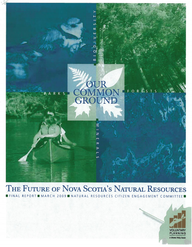The Voluntary Planning document, Our Common Ground, was divided up into five subject areas; Sustainability, Diversity, Collaboration, Transparency, and Informed Decision Making.
In Sustainability a phrase often repeated since then was coined: "The status quo is not an option." It said then current practices were not sustainable. "Our resources and the communities that rely on them are in decline." Sound familiar? The people recognized the overwhelming importance of biodiversity. They said the short term was eclipsing the long term. They emphasized the connection between healthy forests and clean soil, water, and air. They called for green forest practices and the promotion of more value-added forest products.
0 Comments
|
Blog Archives
October 2020
Blog Index
All
|
Photo used under Creative Commons from DaveW99999



 RSS Feed
RSS Feed
